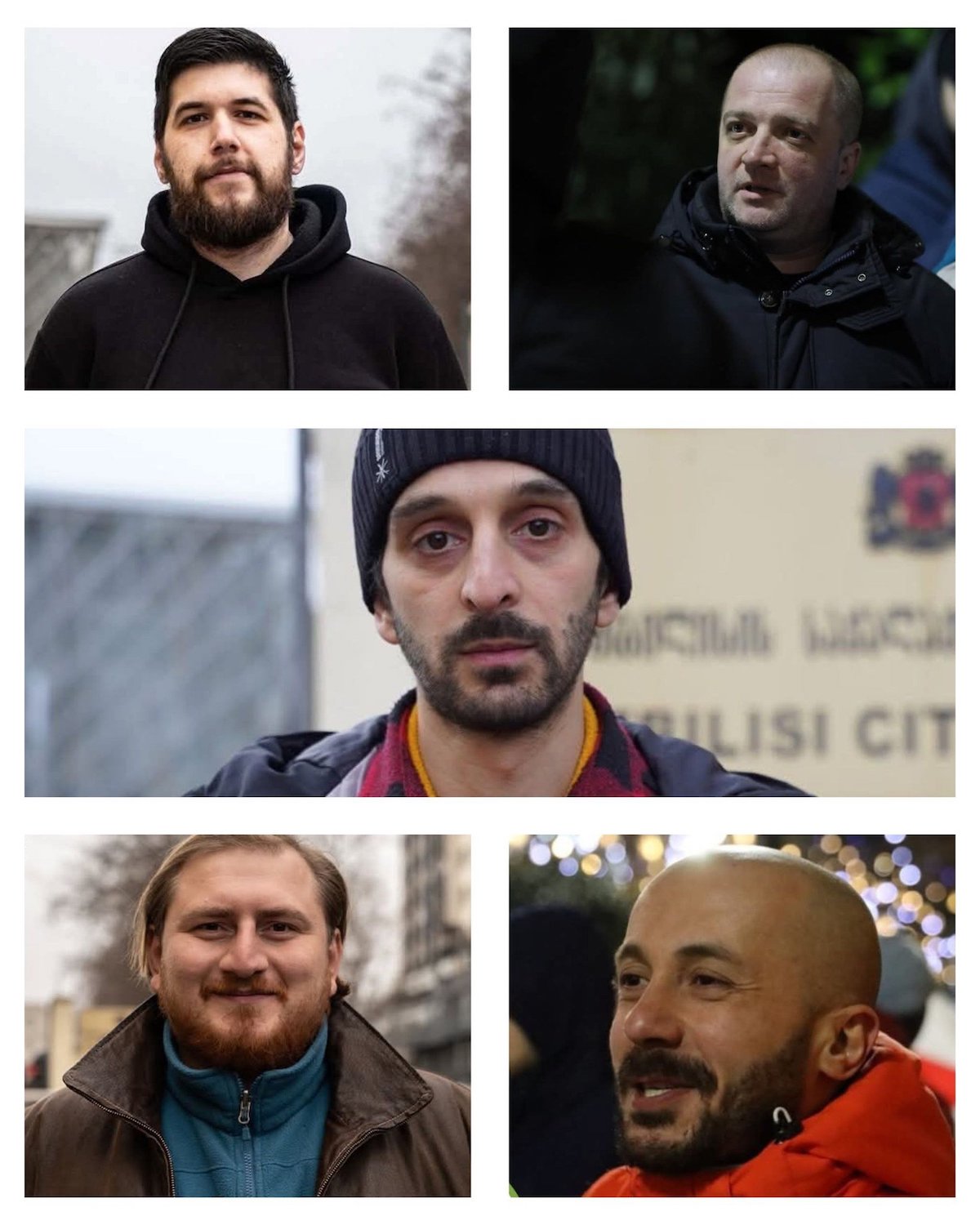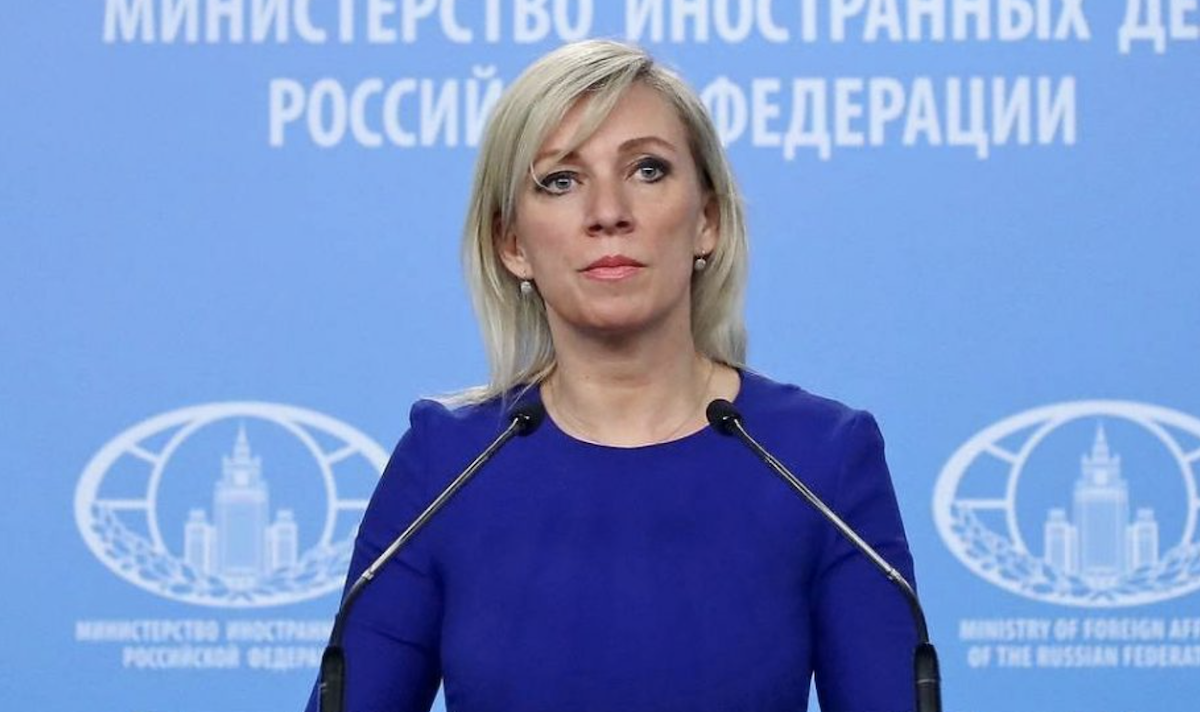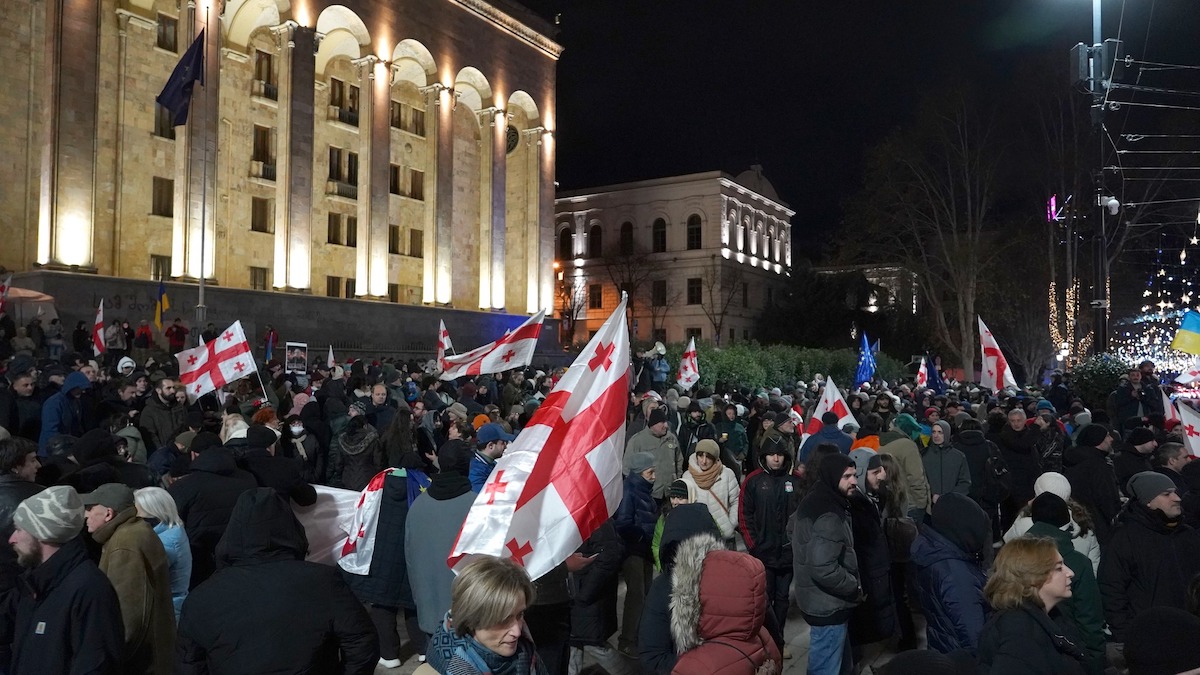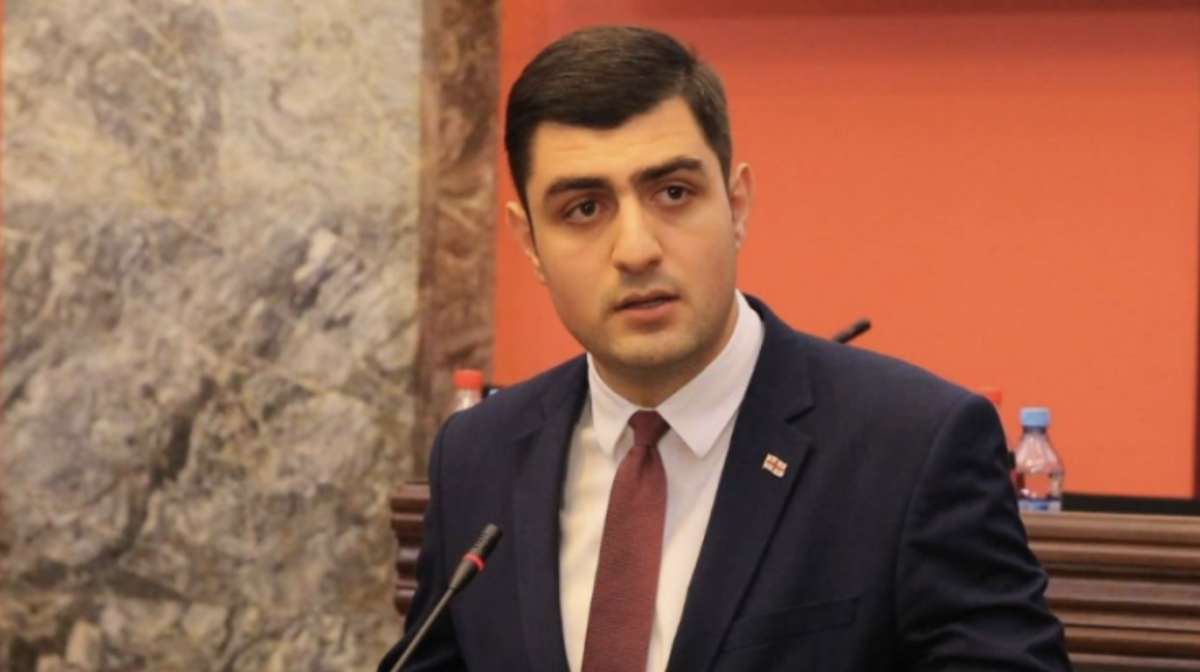Spy passions of new Casablanca
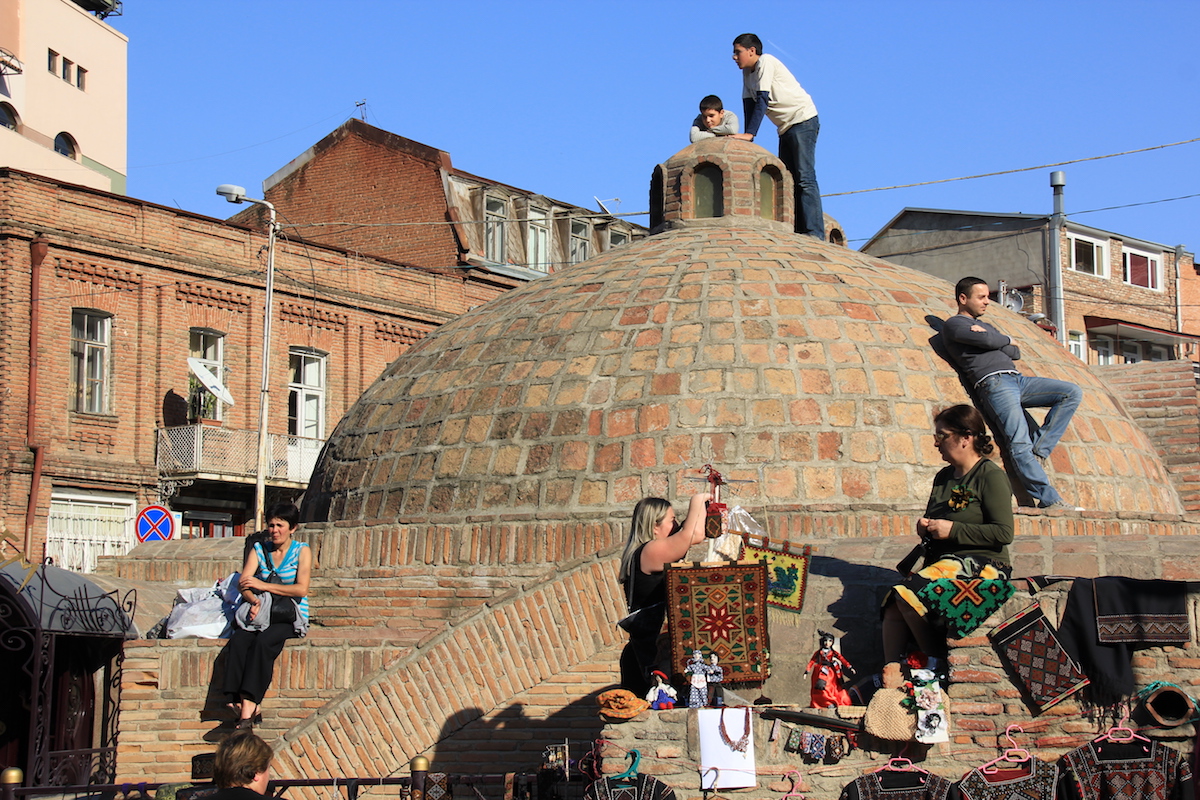
Casablanca, a major port city in the small but proud country of Morocco, turned into a gravity center for various migrants and political refugees during WWII. People, who fled the Nazis, used to come here first, and then travel farther to the free countries. A well-known romantic story, bearing the same name and starring Humphrey Bogart and Ingrid Bergman, unfolded in this very place.
Until recently, Tbilisi was the Casablanca for many Azerbaijanis. And, just like in the movie, ‘real spy passions’ ran high here.
The best country for escape
Azerbaijan ranks 162nd in the Reporters Without Borders’ (RSF) freedom of speech rating. According to the local human rights activists, there are at least 100 political prisoners in the country and this number has been maintained since 2013 at the expense of ‘prisoner turnover’: new convicts replace those, who have been released either based on ‘a letter of contrition’ or upon serving one’s sentence. Participation in unsanctioned protest rallies, civil activity, journalistic investigations, government’s criticism on social media, are named among the traditional reasons for arrest. Official charges may sound as follows: drug distribution, espionage, high treason and calls for riotous actions.
Each person that falls within a ‘risk group’, has their own innate response to handling stressful situations: either they quit their ‘dangerous profession’, or fight to the end, possibly risking going to jail and having their case end up in the European Court, or to escape. Georgia is chosen as a ‘default’ escape destination.
Azerbaijanis say that, here, ‘you aren’t afraid of a policeman when you pass by one’, ‘you don’t need to say the president’s name in a whisper’ and ‘it feels like you’ve taken time off from prison’.
Tbilisi used to be the Casablanca of the Caucasus, an isle of freedom and a transfer station for the further departure of those, whom Azerbaijani authorities regard as ‘unwanted elements’. A few dozen Azerbaijanis moved here over the past few years in fear of possible arrest.
However, the situation has started changing recently.
A threat to Georgia
“Sometimes you are openly spied on all day long and then you’ll find some photos at your door, featuring the places you’ve been and things you’ve done there,” Afgan Mukhtarli, a political migrant, speaking about his life in Tbilisi.
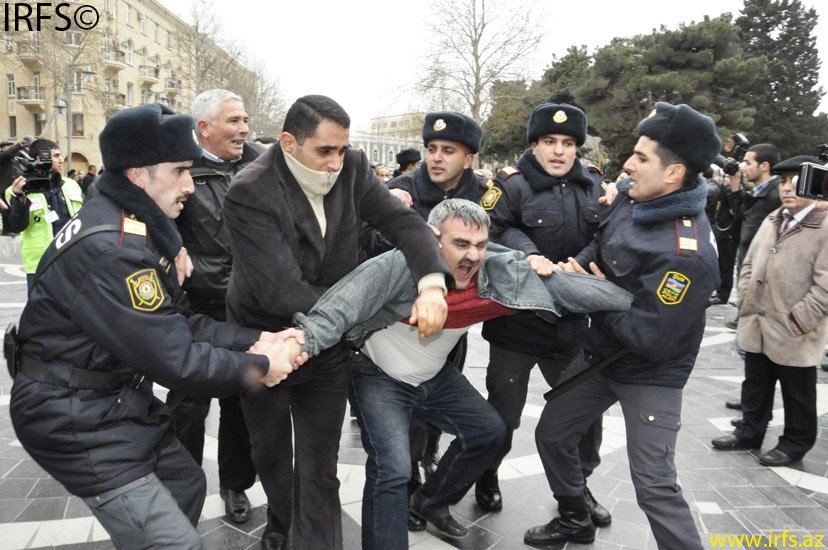
“There’ve been attempts made over the past 5-6 months to force out those Azerbaijani political activists, journalists and human rights advocates who once moved to Georgia,” says Mukhtarli.
“Earlier we used to live, work and meet our colleagues without any problems, whereas now we are often refused to have our temporary residence permits extended. Personally, I, Leyla Mustafaeva – a journalist, political activists Gyunel Movlud and Gaji Gajiev, as well as many others, have been facing such problems.”
Starting from the end of last year, the Ministry of Internally Displaced Persons from the Occupied Territories, Accommodation and Refugees of Georgia has been issuing massive amounts of rejections on extension of residence permits to those individuals, alleging that they ‘violate Georgia’s interests’ and ‘pose threat to citizens’ security’. “But they don’t specify what kind of threat it is,” says Mukhtarli. In his words, he and his colleagues were summoned to various law-enforcement agencies on a number of occasions.
There are a few dozen people like Afgan in Tbilisi, and his story is just the tip of the iceberg.
The vast majority of his colleagues, whom we communicated with, also talk about surveillance and threats, but they prefer anonymity: sometimes they are just afraid to further aggravate the situation, and sometimes they fear for their relatives who are staying in Azerbaijan. Georgian police don’t respond to their complaints in any way, sometimes event telling them bluntly that ‘you act against Georgia’s interests’.
Dashdin Agalarli is a member of the opposition ‘Musavat’ party. He left Azerbaijan in 2014 and afterwards was put on the wanted list for tax evasion. He was arrested in Georgia in November 2014.
He stayed in a pre-trial detention facility for 6 months and then was released with the mediation of the local human rights activists. It was only in early 2017 that he managed to get political asylum in Georgia, but the IDP Ministry challenged this decision end of March and he was deprived of this status.
Unlike most people, Agalarli is not afraid to communicate with mass media, since he is in a desperate situation and the broader publicity, as he puts it, is his last defense. If he fails to leave Georgia by end of May, he will be deported to Azerbaijan and be arrested.
Reasons: petroleum or gas?
What makes Georgian authorities exert pressure on Azerbaijani political migrants? Many believe that Georgia is economically dependent on Azerbaijan and the latter makes use of it as an instrument of pressure.
The State Oil Company of the Azerbaijan Republic (SOCAR), which is Georgia’s largest taxpayer, supplies petroleum and gas there.
The series of outraged publications on one of the pro-governmental websites, reprimanding Georgian leadership for its failure to deport political fugitives to Azerbaijan, indirectly prove that Georgia is pressing on the dissidents because it is pressured by Azerbaijan. Georgia is allegedly betraying its relationship with Azerbaijan, on which it depends economically. As a side note, one is reminded that ‘about 300,000 Azerbaijanis live on their primordial, historical lands in Georgia’.
The only one who was granted political asylum
Vidadi Iskenderli, a human rights activist, is one more character of the new ‘Casablanca’. He is the only Azeri political migrant, who has been granted political asylum in Georgia so far.
However, in Iskenderli’s words, before he achieved that, he had gone through intimidation and pressure.
He was spied on a lot and was even struck over the head once. Thereafter, his family was intimidated, and he had a gun pointed at him, and urged to stop criticizing the Azerbaijani government.
“Once I was on holiday at Lisi Lake together with my wife and daughter. As soon as I left them for a while, two guys came up to me and said: ‘You apparently haven’t wised up. So, watch out!” said Iskenderli.
“The Georgian state can’t protect me, but it is unwilling to recognize it officially,’ he said. “I wish it recognized this fact, so that I could appeal to some other countries that can safeguard me and my family.”
Anti-underground measures
A protest rally against the Meydan TV media resource was organized by some local Azerbaijanis as part of a fight against the ‘Azerbaijani underground’ in Tbilisi this year. The rally organizers claimed that Meydan TV could bring harm to Georgia.
Meydan TV is an Internet-resource that has recently been blocked in Azerbaijan by court ruling. The majority of journalists working for it have been put on a stop-list, i.e. have been officially banned from leaving the country. Moreover, Meydan TV reporters have been arrested, detained and interrogated on many occasions.
Maydan TV employees, who managed to leave Azerbaijan, frequently travel to Tbilisi. One of them, Jamal Ali, a political migrant, was denied entry into Georgia on 19 April.
“I wasn’t given any explanations at the airport. I was urged to take a return flight to Istanbul and then to Berlin,” he said. “What I feared most was that they would send me back to Baku instead of Berlin.”
Here’s what a pro-governmental website wrote in this regard: “Why wasn’t he arrested? Why wasn’t he deported to Azerbaijan? What would Baku have done if the Georgian side had appealed to Azerbaijan with the same request? Tbilisi is well-aware of it, isn’t it?!’
The same article provides a list of nearly all political migrants residing in Tbilisi, referring to all of them in an insulting manner, as betrayers of the nation and oppositionist-conspirators.
The Office of the Public Defender (Ombudsman) of Georgia stated as follows:
“We are now examining several cases of Azerbaijani citizens. However, not all of them are related to the acquisition of a residence permit or political asylum. In most of the cases, the grounds for refusing a residence permit or political asylum are linked to national security, which, in turn, is related to classified materials that we aren’t in a position to discuss.”
Human Rights House Tbilisi has been providing support to Azerbaijani political and civic activists since 2014. At present around 100 people have come to them for help. This number includes not just the activists themselves, but also their family members.
However, Natia Tavberidze, coordinator of Human Rights House Tbilisi can’t confirm that the conditions of Azerbaijani activists in Georgia have worsened over the past few months. According to her, there haven’t been any attempts to interfere with the organization’s activity so far. Tavberidze says that there hasn’t been any precedent of deportation of Azerbaijani activists from Georgia back to Azerbaijan.
Nestan Londaridze, a lawyer dealing with the Azerbaijani citizens’ cases in Georgia, says that the conclusions of the counter-terrorism center at the National Security Service of Georgia often serve as the basis for judicial decisions on denial of residence permits to Azerbaijani citizens. Moreover, this information is classified and the lawyers have no access to it.
“Sometimes, during court hearings, we guessed it from the judge’s face that he was reading a document provided by the counter-terrorism center. A judge delivers decisions based on materials that are not available to us,” said Nestan Londaridze.
JAMnews contacted the Ministry of IDPs and Accommodation, inquiring about the reasons for denial of residence permits to Azerbaijani citizens on some particular cases. We also wanted to know how the ministry would substantiate its allegations that the Azeri activists represent a threat to Georgia. However, despite continuous promises, the agency finally reported that, under the Georgian legislation, such information was confidential and couldn’t be provided to us.
JAMnews turned to the Georgian National Security Service, requesting to confirm reports that the agency provided classified information on Azerbaijani citizens to the courts and other state agencies. We also inquired about any violations or particular security threats on part of certain activists. However, by the time of publication of this material, we had not received any response from the service.
Fear
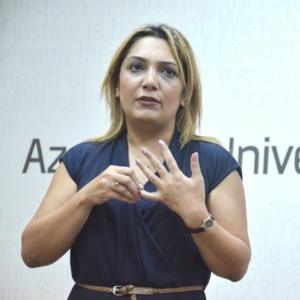
Metanet Azizova, a human rights activist and ex-Chair of the Azerbaijani Women’s Crisis Center, recalls her departure to Tbilisi after being interrogated at the General Prosecutor’s Office in Baku:
“Have you heard the phrase ‘animal fear’? That’s what I experienced. It’s beyond any words. When the GAI (traffic police) stopped us on the way to Tbilisi, I thought everything was over; when a man in civvies stopped me on the border, I thought it was the end; when I called my family in Baku from Tbilisi the next morning and they told me that the house had been searched, I was terrified when I realized what I’d managed to avoid. All my feelings were concentrated on one thing: fear. And then came confusion, uncertainty and understanding that you should save yourself and your family.
However, that was in 2014. People were supported and rendered assistance here in that period, whereas now, those who stayed in Georgia and couldn’t leave for Europe, are bogged down in a quagmire of unsolved problems.”












